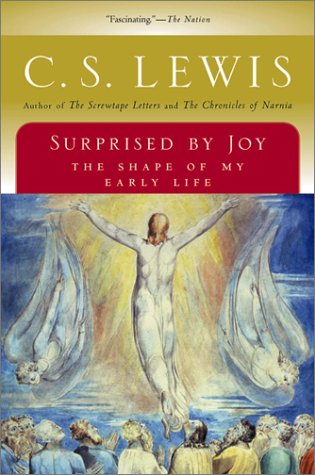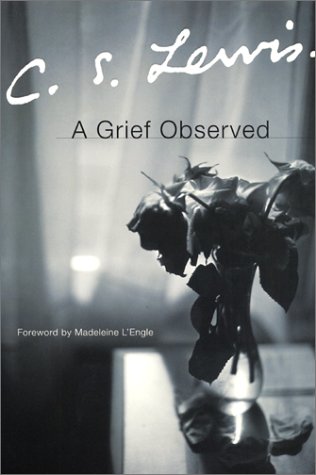The Turkish Delight - "Anyone who had once tasted it would want more and more of it, and would even, if they were allowed, go on eating till they killed themselves."
"Edmund was already feeling uncomfortable from having eaten too many sweets, and when he heard that the Lady he had made friends with was a dangerous witch he felt even more uncomfortable. But he still wanted to taste that Turkish Delight again more than he wanted anything else."
Lucy reminds me of the Apostle Paul, and of Joseph Smith, who said that,
"I had actually seen a light, and in the midst of that light I saw two Personages, and they did in reality speak to me; and though I was hated and persecuted for saying that I had seen a vision, yet it was true; and while they were persecuting me, reviling me, and speaking all manner of evil against me falsely for so saying, I was led to say in my heart: Why persecute me for telling the truth? I have actually seen a vision; and who am I that I can withstand God, or why does the world think to make me deny what I have actually seen? For I had seen a vision; I knew it, and I knew that God knew it, and I could not deny it, neither dared I do it; at least I knew that by so doing I would offend God, and come under condemnation."The Professor's logical defense of Lucy reminds me of the trilemma Lewis presented in Mere Christianity - a person is either telling lies, or they are mad, or they are telling the truth. Lucy "doesn't tell lies and it is obviously that she is not mad. For the moment then and unless any further evidence turns up, we must assume that she is telling the truth."
"If things are real, they're there all the time."
"Are they?"
In fact, much of what the Professor tells Peter and Susan hearkens back to what Lewis writes in Mere Christianity. When he says,
"If there really is a door in this house that leads to some other world... I should not be at all surprised to find that that other world had a separate time of its own... On the other hand, I don't think many girls of her age would invent that idea for themselves. If she had been pretending, she would have hidden for a reasonable time before coming out and telling her story"it reminds me of this quote - "Reality, in fact, is usually something you could not have guessed. That is one of the reasons I believe Christianity. It is a religion you could not have guessed. If it offered us just the kind of universe we had always expected, I should feel we were making it up."
The possibility that "some magic in the house had come to life and was chasing them into Narnia" reminds me of Lewis' conversion in Surprised by Joy - almost as if he was being hunted by God.
I never noticed the foreshadowing in chapter VI - the coats "looked more like royal robes than coats when [the children] had put them on." Nice one, Lewis. :)
"That strange feeling - like the first signs of spring, like good news, had come over them..." Aslan. I love. "He's the King. He's the Lord of the whole wood, but not often here, you understand. Never in my time or my father's time. But the word has reached us that he has come back. He is in Narnia at this moment. He'll settle the White Queen all right. It is he, not you, that will save Mr. Tumnus."
Mr. Beaver's reminder that Aslan is not safe, but good, is a reminder that Christianity is not a "safe" religion. Unlike the religion of the Absolute Lewis talks about in Surprised by Joy, in Christianity there is something to fear and something to obey.
Edmund "hadn't really enjoyed [dinner] because he was thinking all the time about Turkish Delight - and there's nothing that spoils the taste of good ordinary food as much as the memory of bad magic food." This reminds me of what the Green Lady of Perelandra said: "You could send your soul after the good you had expected, instead of turning it to the good you had got. You could refuse the real good; you could make the real fruit taste insipid by thinking of the other."
It's interesting to think of Edmund in chapter IX as an atheist.
What Edmund thought he was getting by going to the witch's house is very different from what he actually got. I think a lot of people think that by choosing to go against God's will, they will have more freedom, more power, and more glory. People think that choosing God means having to follow a lot of rules and losing your freedom. But really, the opposite is true. Satan wants us to be miserable, as he is. He seeks to take away our agency. God wants us to be free and powerful, as He is.
The imagery of springtime is really apparent and beautiful in this book. I think it's a wonderfully appropriate way to describe the change in a person's life as Christ approaches. As Lewis wrote in Surprised by Joy:
Spring is the inevitable image, but this was not gradual like Nature's springs. It was as if the Arctic itself, all the deep layers of secular ice, should change not in a week nor in an hour, but instantaneously, into a landscape of grass and primroses and orchards in bloom, deafened with bird songs and astir with the running water.I find it interesting that the Witch (who represents evil or Satan) has magic that can make things look like they aren't. I think Satan often does the same thing to us today.
Obviously one of the main themes depicted so beautifully and simply in this book is Atonement, or Redemption. Lewis masterfully teaches this idea very simply. Edmund did something bad, and so he owes his life to the White Witch. But Aslan offers to pay the price instead. He offers himself as a willing sacrifice so that Edmund will not have to die. And because he is perfectly innocent, and voluntarily submits to death, death works backwards and he comes back to life. :)
I love when Aslan breathes on the statues in the Witch's house and brings them back to life - it's just like Jesus going to spirit prison / hell and rescuing us. It reminds me that the consequences of this fallen world will not last forever - Jesus is my rescuer. It also reminds me of what Lewis wrote in Mere Christianity -
This world is a great sculptor's shop. We are the statues and there is a rumour going round the shop that some of us are some day going to come to life.I also thought it was interesting how Aslan provided food - "how... I do not know." It's just like Jesus in the New Testament :)
Also interesting how Aslan has "other countries to attend to." :)
And lastly I thought it was funny how Peter, Susan, Edmund, and Lucy "liberated young dwarfs and young satyrs from being sent to school." :)
All in all one of the greatest books ever in my opinion, I would highly recommend it to everyone :) You can read it online here if you like! Or get it from your local library. Or buy it... it'd be an awesome addition to any home library. :) :)














No comments:
Post a Comment